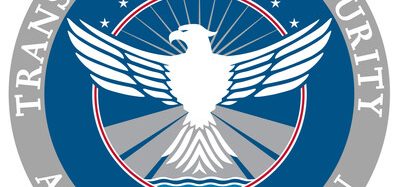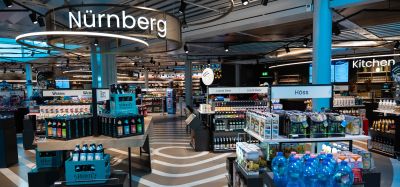Travel retail can still cash-in
- Like
- Digg
- Del
- Tumblr
- VKontakte
- Buffer
- Love This
- Odnoklassniki
- Meneame
- Blogger
- Amazon
- Yahoo Mail
- Gmail
- AOL
- Newsvine
- HackerNews
- Evernote
- MySpace
- Mail.ru
- Viadeo
- Line
- Comments
- Yummly
- SMS
- Viber
- Telegram
- Subscribe
- Skype
- Facebook Messenger
- Kakao
- LiveJournal
- Yammer
- Edgar
- Fintel
- Mix
- Instapaper
- Copy Link
Posted: 6 June 2012 | Frank O’Connell, President of the European Travel Retail Council (ETRC) | No comments yet
In 2010, the global duty-free and travel retail market recorded net sales of $39 billion1 despite the aviation sector being hit by the economic crisis. Having such a vibrant retail sector while many of the economic indicators are at half-mast should be a source of positivity.
Commercial activity is, and will continue to be, one of the principle driving forces behind Europe’s airport industry in the years ahead. In 2010, non-aeronautical revenues, which accounted for 48 per cent of airports’ incomes, grew twice as fast as aeronautical revenues, as airports put greater emphasis on developing their retail activities. This enabled the airports to bring down the costs for airlines and passengers and to finance infrastructure improvements and expansion. The airport commercial sector is now such an important means of generating revenue that vibrant and attractive retail areas are considered by airport operators to be a critical element of their facility modernisation plans.
Development prospects for the duty free and travel retail industry are good, both within the EU and outside its borders. In the next 20 years, I expect that our industry will track and indeed outperform the forecast increases in air traffic, with specifically, travellers from Asia and the Middle East representing a major economic potential.
In 2010, the global duty-free and travel retail market recorded net sales of $39 billion1 despite the aviation sector being hit by the economic crisis. Having such a vibrant retail sector while many of the economic indicators are at half-mast should be a source of positivity.
Commercial activity is, and will continue to be, one of the principle driving forces behind Europe’s airport industry in the years ahead. In 2010, non-aeronautical revenues, which accounted for 48 per cent of airports’ incomes, grew twice as fast as aeronautical revenues, as airports put greater emphasis on developing their retail activities. This enabled the airports to bring down the costs for airlines and passengers and to finance infrastructure improvements and expansion. The airport commercial sector is now such an important means of generating revenue that vibrant and attractive retail areas are considered by airport operators to be a critical element of their facility modernisation plans.
Development prospects for the duty free and travel retail industry are good, both within the EU and outside its borders. In the next 20 years, I expect that our industry will track and indeed outperform the forecast increases in air traffic, with specifically, travellers from Asia and the Middle East representing a major economic potential.
More and more airports are allocating part of their retail space to the display and sale of local and traditional products. Niche producers in the confectionery, luxury goods and liquor sectors are particularly dependent upon duty free and travel retail for brand development. This exposure to an international customer base enables local producers, often Small and Medium Enterprises (SMEs), to quickly gain an international reputation and gain access to overseas markets.
A unique business
The nature of the duty free and travel retail channel is completely different from other channels such as the high-street or online retail. It operates under very stringent security conditions resulting from its location in the restricted passenger only areas of airports. It has a predominantly international customer base and the nature of the products sold often require special merchandising and display, unique gift and luxury packaging and communication in several international languages.
It seems evident that duty free and travel retail is a unique sales channel with different challenges from those operating on the domestic market. However, European and national legislation currently does not take these differences into account, creating additional administrative and operational costs for duty free and travel retailers and manufacturers. These barriers eventually restrict competition in smaller markets to the detriment of both businesses and consumers.
An example was the adoption in 2011 of a European Regulation on food information for consumers which specifies that the labelling of food products must be in a language easily understood by the consumers of the Member States where a food is marketed. While this has merit for a domestic market, it is far less relevant in the internationally diverse travel retail market where the consumer may or may not speak the local language in question. When the regulation comes into effect in 2014, the need to label separately for each Member State market will have a significant impact on the economies of scale for manufacturers and producers, in particular SMEs, many of whom as a result will find it difficult or impossible even, to continue supplying to the duty free and travel retail channel.
There are many more instances of EU and national regulations raising barriers for the duty free and travel retail trade and as a consequence it is one of the European Travel Retail Council’s (ETRC’s) key objectives to gain formal EU recognition for our channel as being unique and distinct, with its own regulatory regime.
Challenges
Many of the challenges we face as an industry come from regulation, not necessarily on the industry itself but often in relation to the products we retail. Two significant products for duty free and travel retail that attract a lot of regulation are alcohol and tobacco, which accounted for 16.6 per cent and 7.4 per cent respectively of global sales in duty free in 20101.
The ETRC this year introduced a code of conduct for the retailing of alcohol in duty free and travel retail outlets as a means of promoting best practice in our industry. The code, which is now being adopted by airport retailers and their suppliers, represents a major initiative by this industry and demonstrates our comm – itment to responsible retailing at airport shops throughout Europe.
Before the end of 2012, the European Commission is expected to propose a revision of its directive on the sale and presentation of tobacco products. While the ETRC has long been advocating for the recognition of the specific retailing circumstances of the duty free sector, the proposal may include provisions with implications for the retailing of tobacco products at European airports.
We will be closely monitoring the proposals that come from the Commission in this area. Our experience to date has shown that when the industry engages proactively on these difficult topics, solutions can be found that meet policy objectives while protecting the duty free and travel retail industry.
Although many challenges come from proposed legislation, duty free and travel retail is facing one of its biggest challenges with the implementation by some European carriers of a ‘one-bag’ hand luggage allowance on passengers, requiring them to cram all their personal belongings, including airside airport purchases, into a single bag or otherwise pay a ‘fine’ of up to €40, throw the items away or be denied travel.
The strict enforcement of this ‘one-bag’ practice at some airports has effectively denied passengers flying on the airlines involved the right to airport shop and has resulted in a dramatic deterioration of the travel experience. Some European airports have suffered up to a 40 per cent decline in duty-free and travel retail sales since the imposition of this unfair practice. Our members have also received numerous complaints from travellers who have been forced to return or abandon their purchases or to pay this ‘fine’ in order to keep their goods. The level of unease and uncertainty created by these practices has led to significant falls in retail sales even at airports with no restrictions.
Although a major concern for retailers in duty free and travel retail, passengers themselves are the main victims of this policy. The ETRC has allied with other organisations including the European Consumers Organisation (BEUC) and ACI Europe to campaign against this unfair practice and work together to raise our concerns in the European Parliament and with the EU Commission.
The ETRC very much welcomes the report by the European Parliament on the matter. The report, formally adopted during a plenary session in March 2011, rejects airline restrictions on passengers’ hand luggage which includes airport shopping. The ETRC will continue to ensure this concern is kept high on the agenda especially in the approach to the European Commission’s review of the Air Passengers Rights Directive expected in the second half of 2012.
Looking forward
Despite all these challenges we have good reasons to be optimistic for the future of our industry. I believe that where we engage proactively with legislators and communicate to them our concerns, the unique nature of duty free and travel retail and the key role our industry plays in airport economics and in the generation of revenues that support the development of airports and their infrastructure, we can achieve significant results.
The duty free and travel retail sector is rightly recognised as one of the keys to generating airport revenues today and I believe will play an even more significant role in the future. The challenge for our industry is to communicate to legislators the benefits that can be realised from putting in place the proper legislative and regulatory framework for this unique industry of ours, thus providing the environment and the room for the industry to expand and to realise its real potential to support the growth and development of SMEs, of regional tourism and of job creation, in other words to create the duty free and travel retail industry of the future.
About the author
Frank O’Connell is President of ETRC and represents Europe on the Duty Free World Council. Frank retired as Director of Retail at the Dublin Airport Authority at the end of July 2008 and has taken on the role of Director, European Retail Affairs on behalf of the Dublin Airport Authority.
Frank has acquired over 15 years of experience in the advertising business while holding several Art and Creative Director positions before joining Aer Rianta in 1979. Frank is a member of the Supervisory Board of Flughafen Düsseldorf GmbH. He is co-author of the book European Airport Retailing, Growth Strategies for the next Millennium and has written extensively on airport retailing.

















